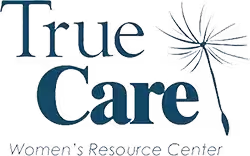Women’s equality is a big topic these days. Did you know Wyoming was the first place to give women the right to vote on a consistent basis? And it wasn’t even a state yet!
On December 10, 1869, the Wyoming territorial legislature passed a law giving women the right to vote, and that law has been in effect ever since. On September 6, 1870, Louisa Swain of Laramie became the first woman to cast a ballot in Wyoming.
Women’s Equality Day
On Wednesday, August 26, America celebrates Women’s Equality Day, recognizing the 1920 certification of the 19th amendment to the Constitution – the one granting women the right to vote nationally. Susan B. Anthony was instrumental in pushing for equality for women; her upbringing as a Quaker inspired her to see everyone as equal. She was passionate about women’s suffrage and about abolishing slavery.
The observance Women’s Equality Day not only commemorates the passage of that important constitutional amendment, but also calls attention to women’s continuing efforts toward full equality – in pay, employment, housing, and other facets of life.
Women’s Equality is celebrated on August 26, 2020.
Graphic from https://thezebra.org/2019/08/11/z-womens-turn-womens-equality-day/
While women of all backgrounds continue to face inequality, those of color as a group face even greater disparities. According to the National Partnership for Women and Families, Latinas are paid only 54 cents for every dollar paid to white, non-Hispanic men; Native American women are paid 57 cents for every dollar, and black women are typically paid 62 cents for every dollar paid to white, non-Hispanic men. White, non-Hispanic women are paid 79 cents for every dollar. Asian American women fare better – they are typically paid 90 cents for every dollar paid to white, non-Hispanic men.
Smart and Capable
Women work in many capacities. They are governors, scientists, and astronauts. They are CEOs, and small business owners. They serve as university administrators, college professors, and school teachers. They are musicians, artists, and nonprofit executives. They serve as doctors, nurses, mothers, and leaders of all sorts.
Although women have come a long way since Louisa Swain and Susan B. Anthony, there are still areas, including pregnancy, where men attempt to disempower them.
Some women and young girls feel pressured to have an abortion, and may even be threatened with physical harm. This is not legal, and you can do something about abortion coercion.,Abortion Coercion
Did you know that 73 percent of American women who have abortions feel pressured to do so? This is called coercion – and it is illegal. A woman has full autonomy (independence) regarding her body, and no one (including father of the baby, parents of the woman, even if she’s a minor, or a doctor) can tell her she must have an abortion. If you are facing an unplanned pregnancy, YOU have a choice – don’t let someone force you to do something you don’t want to do. Be empowered for your life and your pregnancy.
Be Empowered
We at True Care want to remind you that you are fearfully and wonderfully made. You are strong and capable, and even if you are unsure about some things in your life, you have women around you, including us, to cheer you along your journey. Empowerment is a beautiful word.
